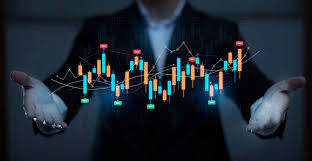
The Rise and Impact of Global Forex Trading
In the dynamic world of finance, few markets are as expansive and influential as the foreign exchange (forex) market. Known for its high volatility and significant liquidity, global forex trading serves as the backbone for international commerce and investment. For investors and traders, leveraging reliable tools such as a global forex trading Crypto Trading App can enhance trading strategies and optimize performance. As we delve into the intricacies of forex trading, we’ll explore its origins, growth, and the modern technological impacts shaping its future.
Understanding Forex Trading
The forex market is where currencies are traded, and it operates through a network of banks, brokers, and financial institutions. Unlike other markets, forex has no centralized exchange; instead, transactions occur over the counter (OTC), which means trades are executed through a network of computers connected by the internet. This decentralized nature introduces considerable opportunities and challenges for traders globally.
The Birth of Forex
The origins of forex trading date back to the 15th century when the Medici family in Italy began exchanging currencies. However, it wasn’t until the 19th century that the modern forex market began to take shape, with the establishment of the gold standard, allowing countries to base their currencies on gold reserves. The Bretton Woods Agreement of 1944 further established a fixed exchange rate system, linking currencies to the US dollar until the early 1970s when nations moved to a floating exchange rate system. This transition opened doors for individual traders and investors to engage in forex trading as we know it today.
Forex Market Characteristics
The forex market is defined by several key characteristics, making it unique compared to other financial markets:
- Liquidity: The forex market is the largest financial market in the world, with a daily trading volume exceeding $6 trillion. This immense liquidity means that traders can enter and exit positions with minimal slippage.
- 24-Hour Trading: The forex market operates 24 hours a day, five days a week. This allows traders from different time zones to engage in trading activities at their convenience.
- Leverage: Forex brokers often provide substantial leverage, allowing traders to control larger positions with a smaller amount of capital. While this can amplify profits, it equally increases the risk of significant losses.
- Diversity of Trading Instruments: Traders can engage in various currency pairs, including major, minor, and exotic pairs, depending on their risk appetite and market knowledge.

Economic Impact of Forex Trading
Forex trading plays a crucial role in the global economy. It facilitates international trade by enabling businesses to exchange currencies to conduct transactions in different countries. Additionally, central banks influence currency values through monetary policies, affecting inflation, interest rates, and economic stability. Fluctuations in currency values can impact the competitiveness of a country’s goods and services abroad, thereby affecting economic growth.
The Role of Technology in Forex Trading
In recent years, technology has revolutionized the forex trading landscape. Algorithmic trading, artificial intelligence, and big data are transforming how traders analyze market trends and make decisions. Trading platforms have become more accessible, offering sophisticated tools for charting, technical analysis, and automated trading. These advancements enable traders to respond to market changes swiftly, enhancing their ability to capitalize on opportunities.
Challenges and Risks in Forex Trading
Despite the numerous advantages of forex trading, there are inherent risks that traders must navigate. Market volatility can lead to sudden price swings, resulting in significant financial losses. Additionally, the lack of regulation in certain parts of the market can expose traders to unscrupulous brokers or scams. Moreover, psychological factors often play a critical role in trading outcomes; emotions like fear and greed can undermine even the best-informed trading strategies.
Adapting to Market Changes
For traders aiming to succeed in the global forex market, adaptability is crucial. The economic landscape is continually evolving due to geopolitical events, regulatory changes, and technological advancements. Staying informed about market news and understanding how it influences currency movements can give traders the necessary edge. Moreover, developing a disciplined trading strategy and sticking to risk management principles is essential in navigating the inherent uncertainties of forex trading.
Conclusion
In conclusion, global forex trading is a complex, multifaceted market that offers both opportunities and challenges for participants. Its profound impact on the economy and the increasing reliance on technology signifies its enduring relevance. As market conditions continue to evolve, traders must equip themselves with the right knowledge and tools to thrive. With continuous learning and strategic planning, they can not only survive but flourish in the vibrant world of forex trading.



